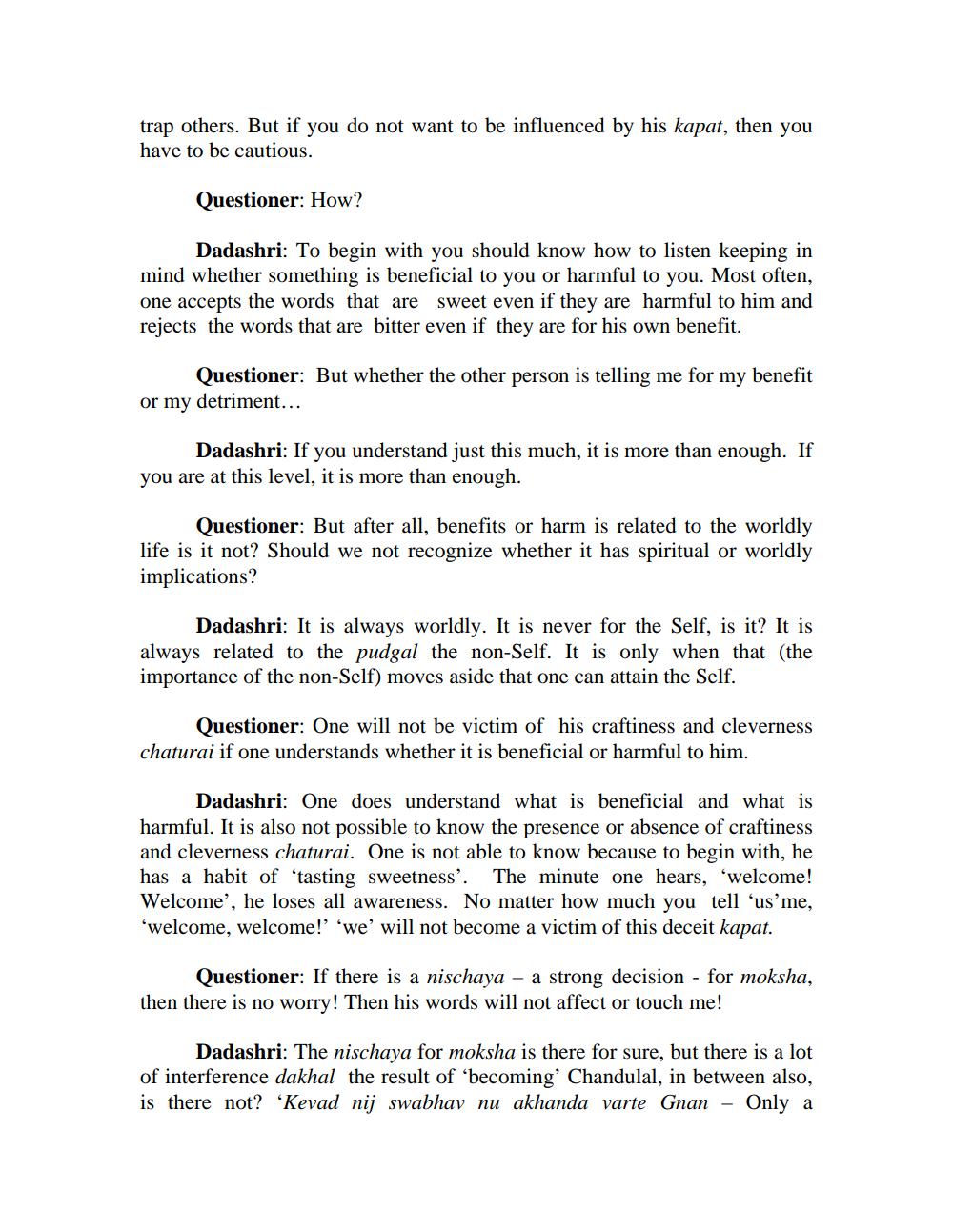________________
trap others. But if you do not want to be influenced by his kapat, then you have to be cautious.
Questioner: How?
Dadashri: To begin with you should know how to listen keeping in mind whether something is beneficial to you or harmful to you. Most often, one accepts the words that are sweet even if they are harmful to him and rejects the words that are bitter even if they are for his own benefit.
Questioner: But whether the other person is telling me for my benefit or my detriment...
Dadashri: If you understand just this much, it is more than enough. If you are at this level, it is more than enough.
Questioner: But after all, benefits or harm is related to the worldly life is it not? Should we not recognize whether it has spiritual or worldly implications?
Dadashri: It is always worldly. It is never for the Self, is it? It is always related to the pudgal the non-Self. It is only when that (the importance of the non-Self) moves aside that one can attain the Self.
Questioner: One will not be victim of his craftiness and cleverness chaturai if one understands whether it is beneficial or harmful to him.
Dadashri: One does understand what is beneficial and what is harmful. It is also not possible to know the presence or absence of craftiness and cleverness chaturai. One is not able to know because to begin with, he has a habit of 'tasting sweetness'. The minute one hears, 'welcome! Welcome', he loses all awareness. No matter how much you tell 'us'me, 'welcome, welcome!' 'we' will not become a victim of this deceit kapat.
Questioner: If there is a nischaya - a strong decision for moksha, then there is no worry! Then his words will not affect or touch me!
Dadashri: The nischaya for moksha is there for sure, but there is a lot of interference dakhal the result of 'becoming' Chandulal, in between also, is there not? 'Kevad nij swabhav nu akhanda varte Gnan Only a




